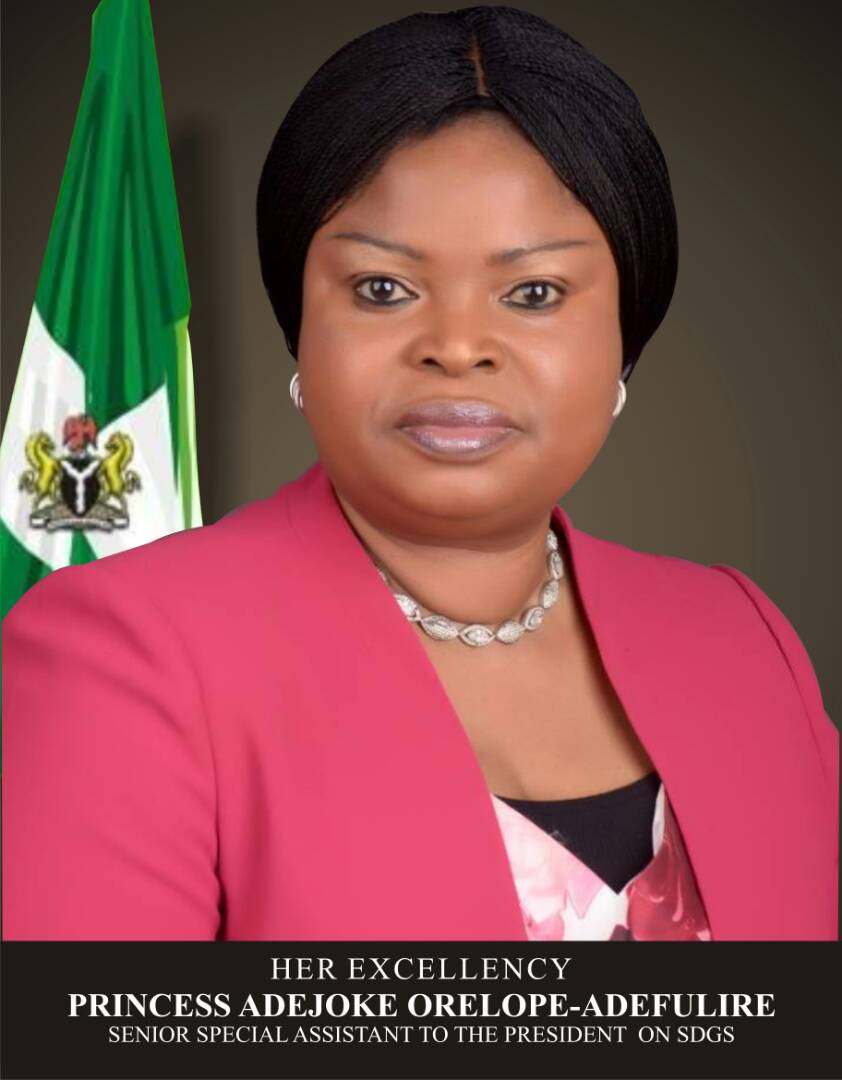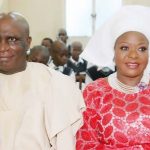...To get all news updates, Join our WhatsApp Group (Click Here)
Also Join our WhatsApp Channel (Click Here)
Demand for explanations on how the Senior Special Assistant to the President on Sustainable Development Goals (SDGs), Adejoke Orelope-Adefulire, expended public funds on covid-19 and N26.9billion worth of contracts caused arguments among members of the House of Representatives.
The occasion was the budget defence hearing by the House committee on SDGs led by Mr. Rotimi Agunsonye (APC, Lagos) on Thursday. Mrs. Orelope-Adefulire is a former deputy governor of Lagos State.
There was back and forth between the Chairman and members of the Committee as all efforts to get the SSA to respond to certain tough questions on details of expenditure for projects were stampeded.
This is not the first time the chairman of the committee would appear to be shielding the SDGs aide from thorough scrutiny as he had in June this year, issued a statement dismissing reports of alleged financial impropriety.
The presidential aide, on the other hand, believes her office is doing well in delivering on its mandate.
While, reviewing the 2020 budget of the SDGs, the President’s aide disclosed that a total of 459 contracts amounting to N26.851bn were awarded in 2020 with N3.009bn so far paid to contractors and the percentage of performance put at 11.2 percent.
The lawmakers however expressed reservations that individual contract sums were not attached to the projects executed as claimed by the SSA.
Orelope-Adefulire could not disclose how much was spent on the supply of 502,000 face mask, 4,033 specialised hospital beds, 1502 desktops and construction of 1578 classroom blocks fitted with furniture.
Other contracts for which the SSA could not disclose the contract sums are: supply of 1,196 motorcycles, 2,407 grinding machines, 2,500 sewing machines, 1, 134 50kg fertilisers, 1,315 bags of rice and 1,961 bags of 100kg rice.
Earlier, the SSA told the Committee that all projects under her agency as appropriated for in the 2019 budget were completed and fully paid for.
“We do not have any ongoing project for 2019. We do not have any abandoned or uncompleted project. No contractor is currently being owed”, she stated.
While giving an update on the 2020 budget performance, she noted that the Covid-19 pandemic and lockdown hindered progress and performance such that most of the projects were still ongoing.
“The 2020 budget performance can be said to hanging due to the Covid-19 pandemic, Nigeria like most countries were affected so it affected our performance. In fact, the lockdown affected us, although we have done all our procurement process, so some projects have already been executed while some are still ongoing. We have completed all our procurement but the payment is ongoing. We have paid N7.5 billion. The problem this time around is procurement is very slow”, she said.
Consequently, members took turns to pick holes in both the document and oral presentation made by the SSA.
According to Mr. Ozurigbo Ugonna representing Isu/Njaba/Nkwerre/ Nwangele federal constituency of Imo State, “we would like to know why there is no allocation for Special intervention Projects. Why are we seeing zero, zero everywhere. Does this mean the SIPs are not important? The 2020 special intervention funds nothing has been released or done with just one month to the end of the year. Meanwhile, every other item has gotten funds except that (SIPs) why?”
But just as the SSA was about responding, the chairman of the Committee intervened and requested that she should be given opportunity to make her 2021 budget presentation. He also then said it was not the fault of Mrs. Orelope- Adefulire that there were no releases for projects.
“On the issue of special intervention please colleagues let us calm down. It is not her faut that SIP has not gotten releases, if she does get releases there is nothing she can do. Again honourable colleagues, I will crave your indulgence to allow her to finish presenting the 2021 budget”, Agunsoye defended.
Another member, Mr. Bede Eke (PDP, Imo) asked: “We want to know if you got any releases concerning Covid-19 and if you do how was it shared, we want to know the method of distribution?
Mr. Gogo Bright Tamuno, representing Okrika/Ogu-Bolo federal constituency of Rivers State, however raised concern over the non-inclusion of Rivers State in all the programs and projects as captured in the SDGs 2020 budget.
The SSA revealed that: “We work base on releases and if nothing was released there is nothing we can do. The fault is not that of SDG but that of the Minister of Finance. We have just few members that domiciled their zonal interventions with us and we have all implemented them. I want to plead that when we are done with this meeting we can sit down to crosscheck.”
Disagreement continued amongst members as some insisted they need more detailed explanation on the 2020 budget performance of the SDGs office before they can progress to 2021 proposals.
On the question on exclusion of Rivers state from the distribution of covid-19 palliatives, the SSA said: “We don’t have special funding and we didn’t get any. What we did as regards Covid-19 was done equally with our budget, there was no additional funding. Because we are an interventionist agency. We provided 100 beds and facemask for every state except Rivers state because it does not cooperate with us. I don’t really know what the problem is if we take anything to them they don’t accept. But I’m making out time to meet with the governor.”
You can get every of our news as soon as they drop on WhatsApp ...To get all news updates, Join our WhatsApp Group (Click Here)
Also Join our WhatsApp Channel (Click Here)

















